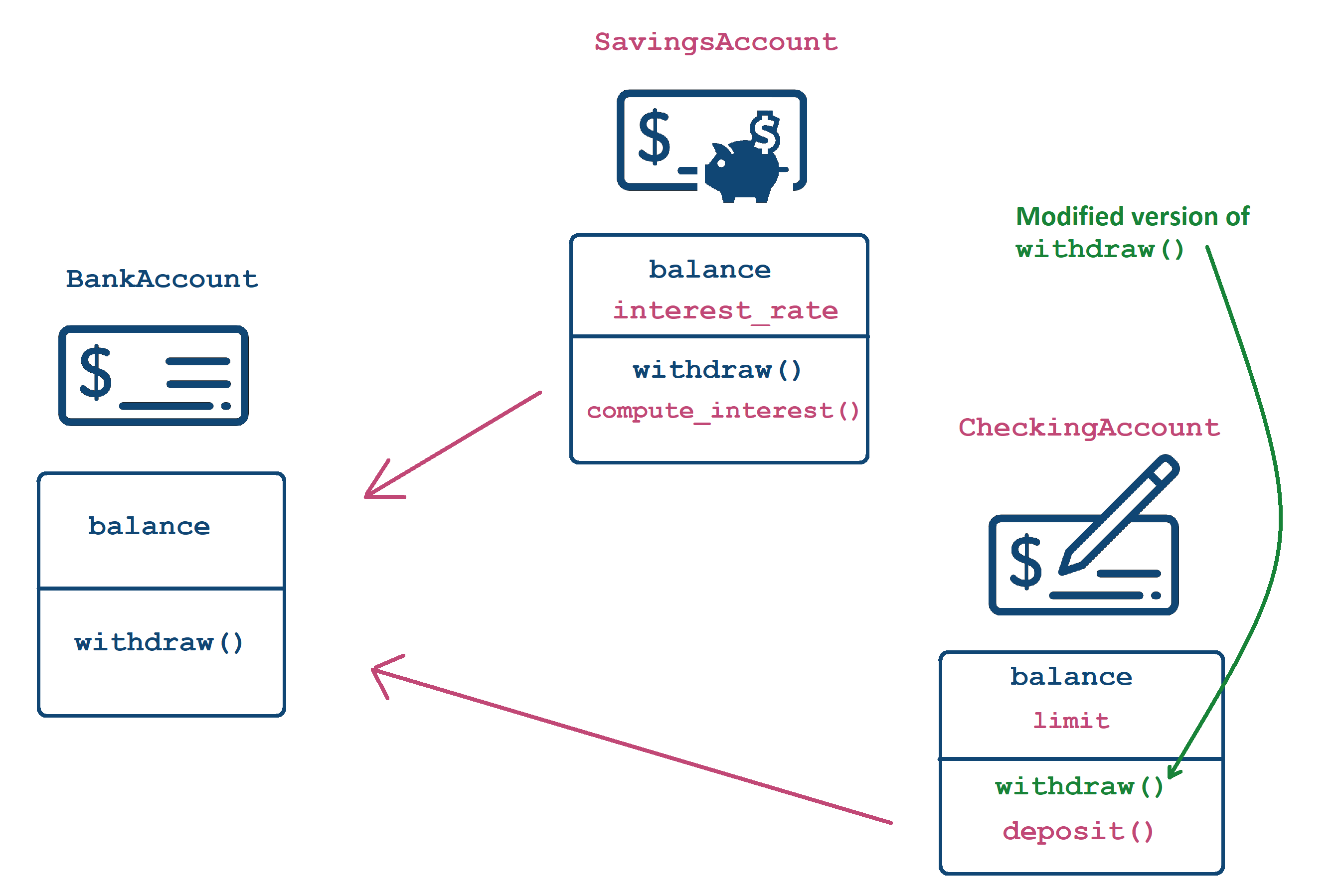Diseñando para herencia y polimorfismo
Programación orientada a objetos en Python

Alex Yarosh
Content Quality Analyst @ DataCamp
Polimorfismo
Usando una interfaz unificada para operar en objetos de diferentes clases

Lo que importa es la interfaz
# Retirar cantidad de cada cuenta en list_of_accounts def batch_withdraw(list_of_accounts, amount): for acct in list_of_accounts: acct.withdraw(amount)b, c, s = BankAccount(1000), CheckingAccount(2000), SavingsAccount(3000) batch_withdraw([b,c,s]) # <-- Usará BankAccount.withdraw(), # luego CheckingAccount.withdraw(), # luego SavingsAccount.withdraw()
batch_withdraw()no necesita verificar el objeto para saber quéwithdraw()llamar
Principio de sustitución de Liskov
La clase base debe ser intercambiable con cualquiera de sus subclases sin alterar propiedades del programa
Donde BankAccount funcione, CheckingAccount también debería funcionar

Principio de sustitución de Liskov
La clase base debe ser intercambiable con cualquiera de sus subclases sin alterar propiedades del programa
Sintácticamente
- firmas de funciones compatibles
- argumentos, valores devueltos
Semánticamente
- el estado del objeto y del programa permanece consistente
- el método de la subclase no fortalece condiciones de entrada
- el método de la subclase no debilita condiciones de salida
- sin excepciones adicionales
Violación del LSP
→ Incompatibilidad sintáctica
BankAccount.withdraw() requiere 1 parámetro, pero CheckingAccount.withdraw() requiere 2
→ Fortalecimiento de condiciones de entrada en subclase
BankAccount.withdraw() acepta cualquier cantidad, pero CheckingAccount.withdraw() asume que la cantidad es limitada
→ Debilitamiento de condiciones de salida en subclase
BankAccount.withdraw() solo puede dejar un saldo positivo o causar un error, CheckingAccount.withdraw() puede dejar saldo negativo
Violación del LSP
→ Cambiar atributos adicionales en el método de la subclase
→ Lanzar excepciones adicionales en el método de la subclase
$$\text{\textbf{\Huge{Sin LSP -- Sin Herencia}}}$$
¡Vamos a practicar!
Programación orientada a objetos en Python

